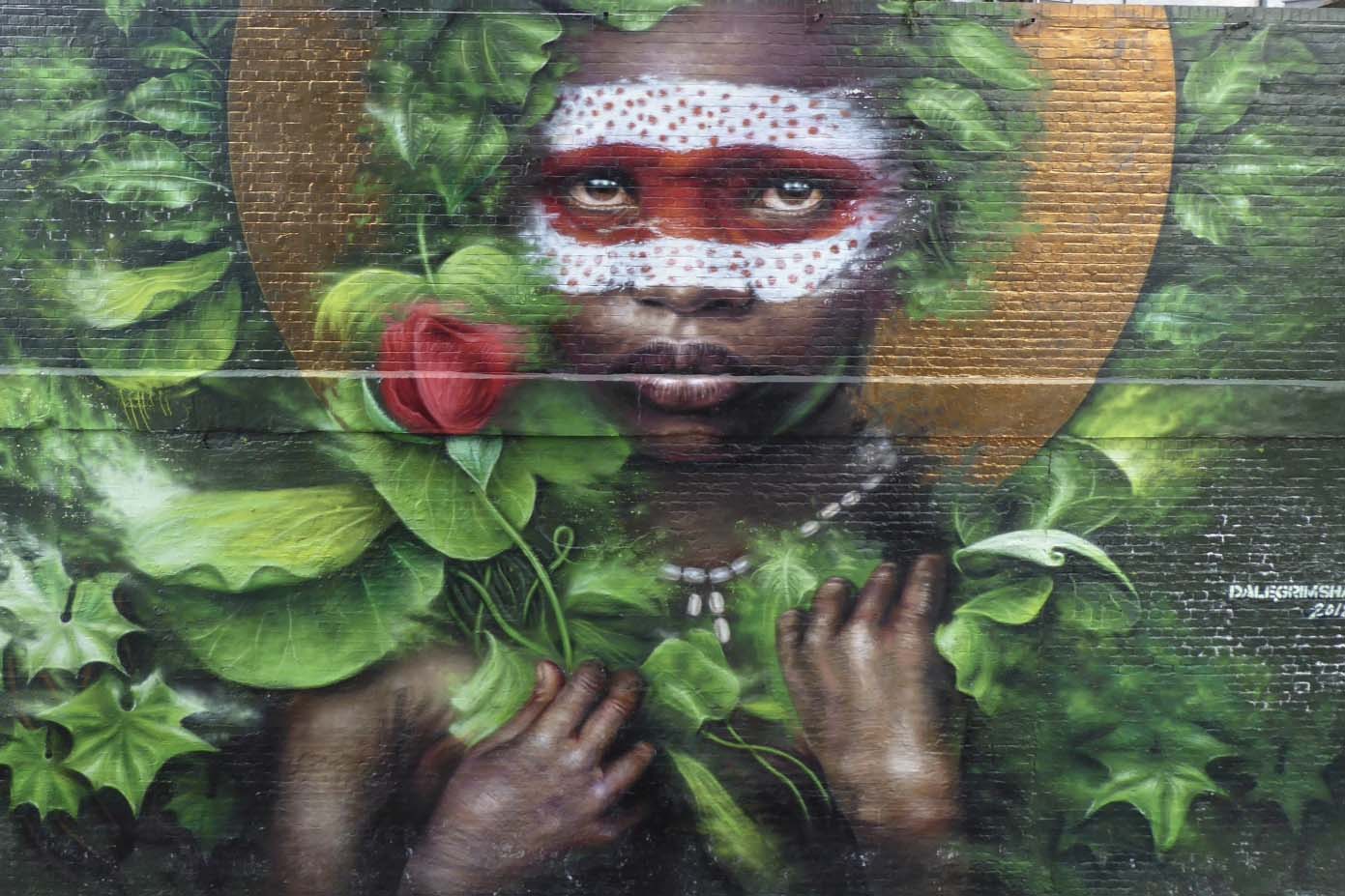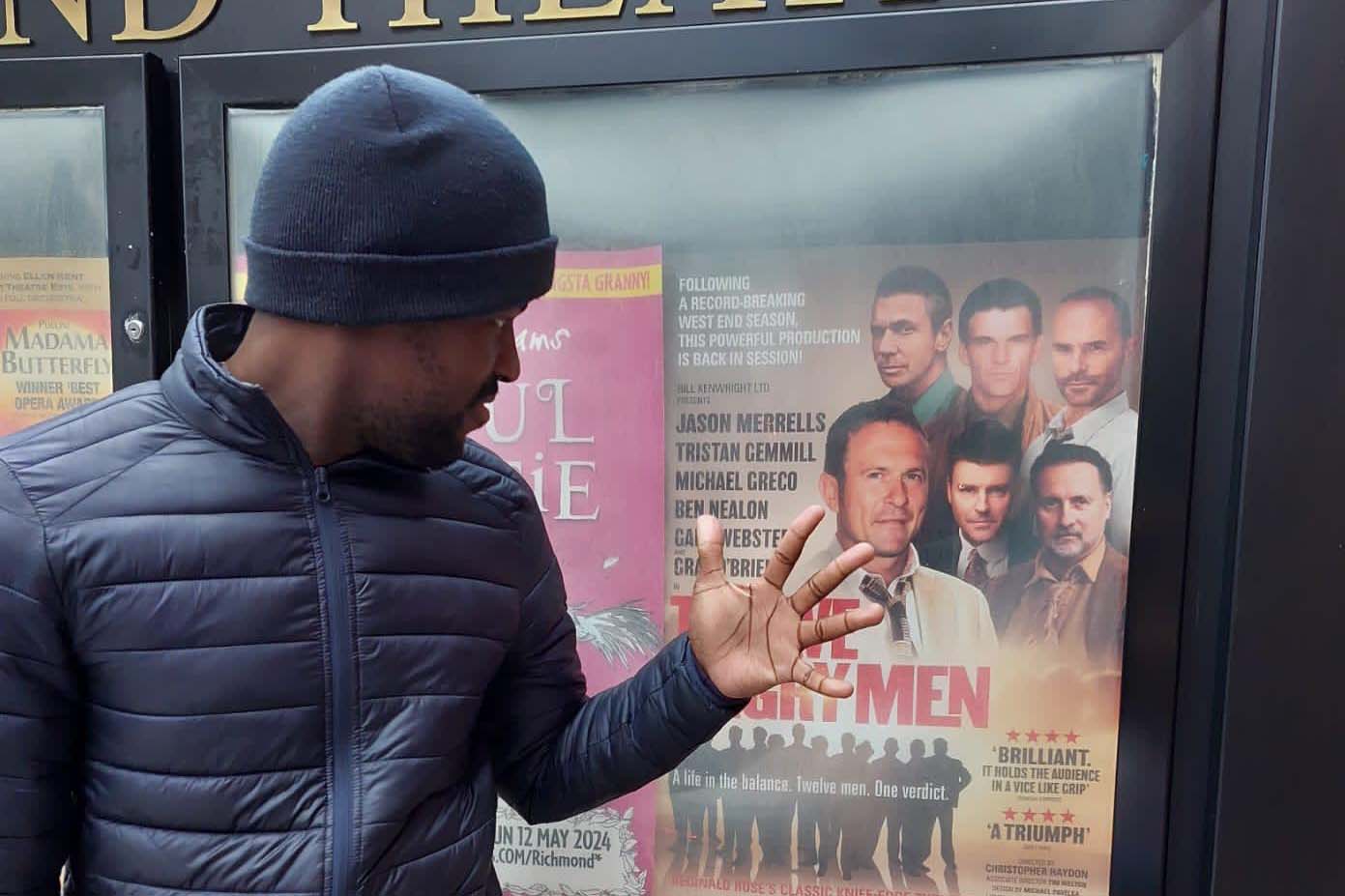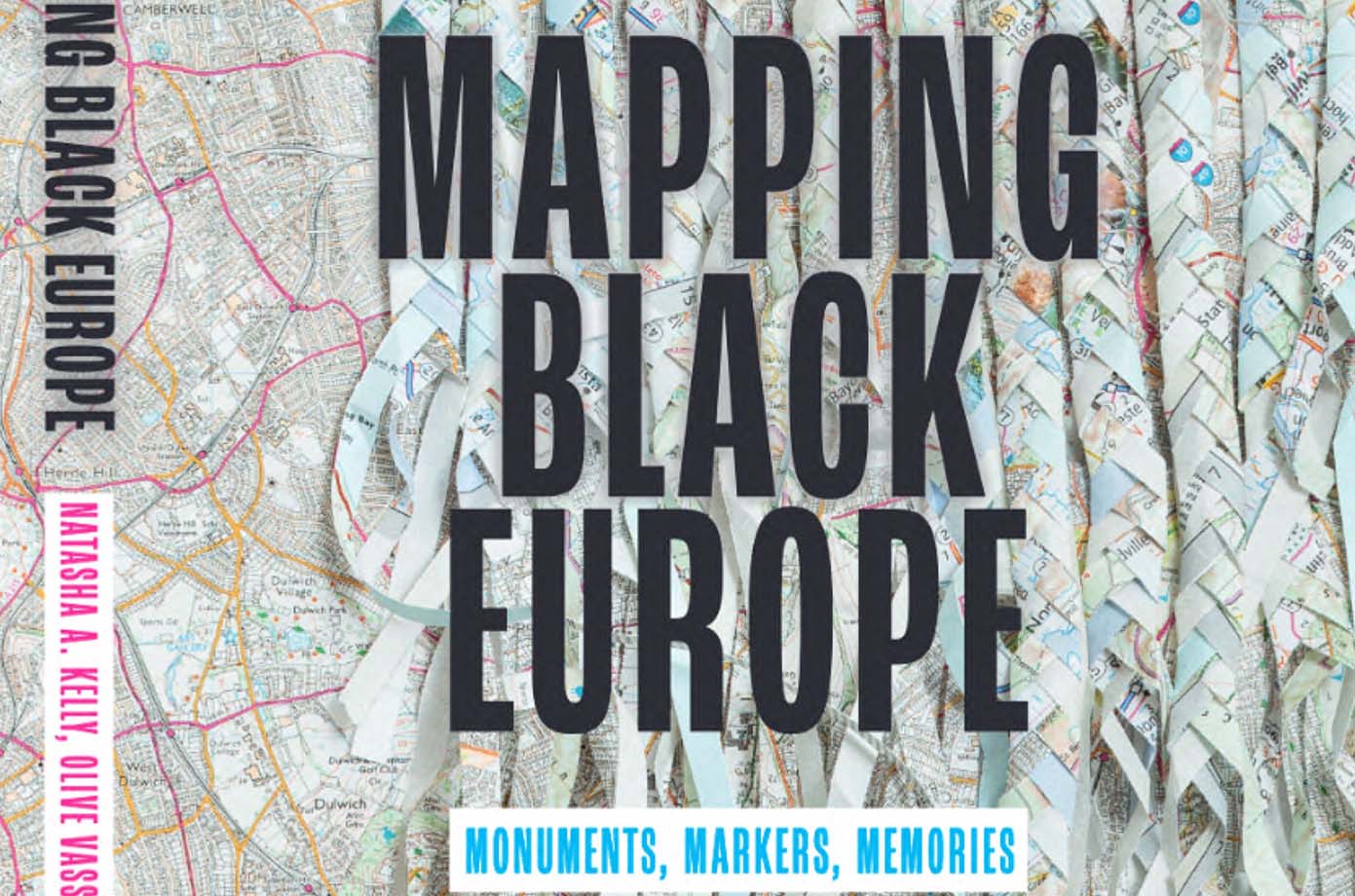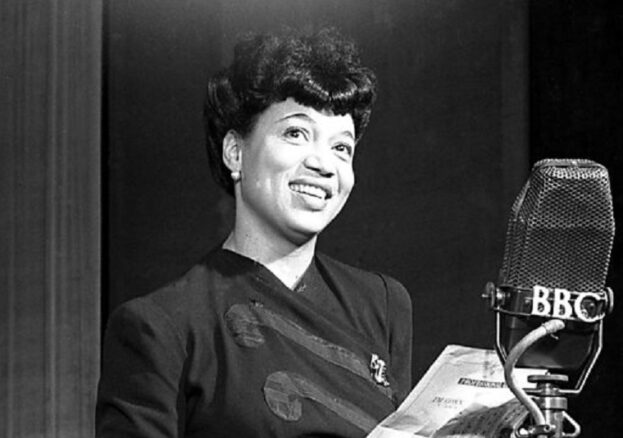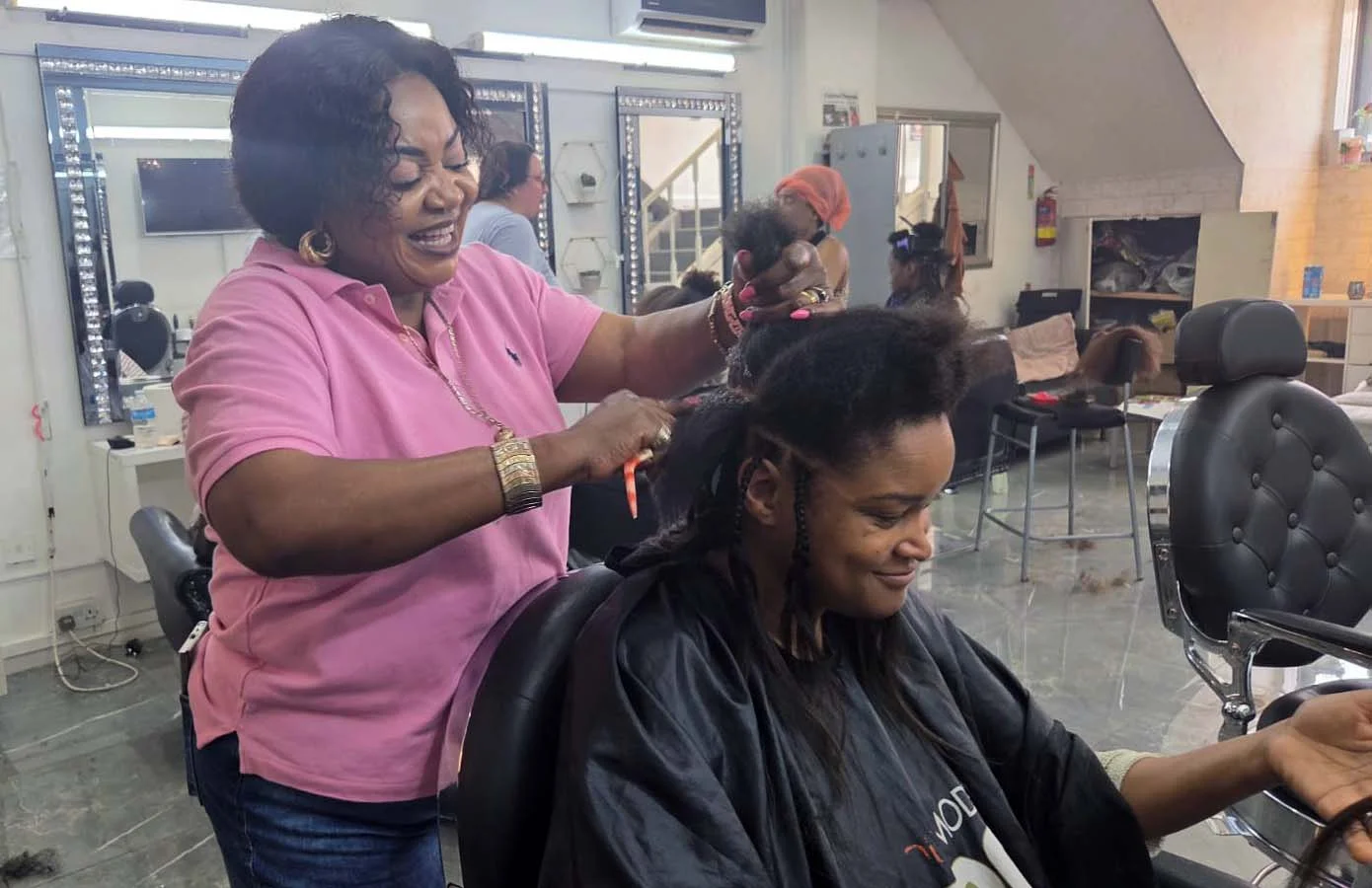
Maria-Josee Mampuya Yonda, owner of Josee Professional Braiding Studio, styles client’s hair. Photo: Lisette Felix.
More than just hair
BY LISETTE FELIX
Hair is the beauty of your face, well at least that is what my mum used to say. It does not matter if you are not that pretty, great hair can make all the difference. It signifies youth, health, and most of all wellbeing. Hair can both influence and be influenced by mental health, often conveying the link between the two.
According to Claudette Maharaj, director of TRIYBE, an organisation that works on community-led research projects, exploring concerns around Black and Afro hair care products, “for Black individuals, hair is often deeply intertwined with confidence and cultural continuity.”
Professional stylist Maria-Josee Mampuya Yonda, and her clients know this all too well. The founder of Josee’s Professional Braiding Studio in North London, specialises in braiding and wig making.
Client Monique Ferdinand, a Canadian who is returning home after a prolonged stay in London, began her treatment with Mampuya Yonda after being recommended by a friend and regular customer. “I just wanted someone I could trust, who listens when I ask them not to plait my hair too tight,” Ferdinand said, who kept her hair natural for more than a year to help it recover from issues due to too tight braids.
Problems like Ferdinand’s and others including using harsh straightening creams can all contribute to eventual hair loss. Of course, there are other reasons for shedding like medical treatments, anxiety, trauma, or stress related disorders. “Chronic stress can have a detrimental impact on hair health, leading to conditions such as telogen effluvium, where hair follicles prematurely enter the resting phase, resulting in increased shedding. Stress can also exacerbate existing hair and scalp conditions like dandruff, psoriasis, and seborrheic dermatitis, further affecting one’s self-esteem and mental health,” according to the Belgravia Hair Centre in London.
According to Maharaj, “When hair is lost, whether due to alopecia, chemotherapy, or stress-related shedding, the impact can be devastating. It is not merely cosmetic; it is a loss of self, of visibility, of expression.”
Experts like Mampuya Yonda can help. A beautiful, gently spoken Congolese refugee, who has been in London for more than 30 years, she is also a master wigmaker who was featured in Vogue and commissioned to make a braided wig for actress Cynthia Erivo’s role in the musical Wicked.
Catering to an international clientele of women and men, Mampuya Yonda’s wigs cost between £70 – £450, but she tries to keep her costs down. ‘If I can get an extra £50, I am happy with that. I like to be honest and not rip people off, that way people keep coming back,” she said.
The importance of hair care to the UK’s Black community is evident by the financial resources allocated to it. According to the British Beauty Council, “Afro-caribbean women are reported to spend six times more than other ethnicities on beauty and hair services.” Meanwhile, the global black hair care market size was valued at approximately £5.79 billion ($7.84 billion) in 2024 and is expected to reach £9.40 billion ($12.72 billion) by 2033.
For Mampuya Yonda though money is not a primary motivation. “When a client comes into my salon depressed about their hair I have to do something creative to get a smile again and to keep my client happy,” she said.
For information about Mampuya Yonda visit,
Elisabeth Welch, a name that resonates with timeless elegance and unparalleled talent. Born in 1904, Welch was a trailblazing African-American singer and actress who left an indelible mark on the entertainment industry. Her career spanned decades, showcasing her versatility in jazz, blues, and musical theater.
Welch’s voice was a mesmerizing instrument that transcended boundaries, captivating audiences on both sides of the Atlantic. From her early performances in the Harlem Renaissance to gracing London’s West End stages, Welch’s charisma and vocal prowess earned her widespread acclaim.
Beyond her musical prowess, Welch made history as one of the first African-American women to star in a British film during the 1930s. Her legacy is not only defined by her groundbreaking achievements but also by her resilience in the face of racial and gender barriers.
Elisabeth Welch’s journey is a testament to the enduring power of talent and tenacity. As we celebrate her contributions, let us remember and honor a woman whose artistry continues to inspire generations, leaving an indomitable legacy in the annals of entertainment history.

